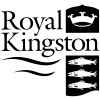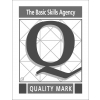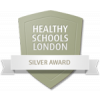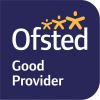Early Reading and Phonics at King Athelstan
If you walked into a phonics lesson at King Athelstan you would see a buzz of excitement and activity as the children learn to read and write through systematic synthetic phonics. Phonics is a way of matching the small units of sound in spoken English to the letters or groups of letters which represent that sound in writing.
As a school we follow the Ruth Miskin, Read Write Inc. (RWI) programme.

RWI uses ‘Fred talk’ as a teaching strategy which helps children read unfamiliar words by pronouncing each sound in the word one at a time. Children can start blending sounds into words as soon as they know a small group of letters well. Sound blending is essential in reading. Children use ‘sound buttons’ to help them identify each unit of sound in a word:

RWI links every sound to a picture and a phrase to help the children remember it. For example: the letters a and y, once joined together, make the sound ‘ay’ and the phase we use to remember it is:
‘May I play?’

As a school we have created our own phrases for some of the alternative spellings taught in KS1 and have added Makaton actions to the sounds learnt in reception to support those children who learn through kinaesthetic activity. Reception children take home 'Pocket Rocket' stories each week with the sounds that they have been learning and KS1 children receive phonics homework to help recap sounds learnt each week.


Click here to see our:
Phonics Progression
Handwriting and Phonic Phrases
Sound Mats
We use sound mats to help build children's confidence and to develop independence during reading and writing lessons.



Click here to see our sound mats:
EYFS - Set 1 and 2 Sound Mat
Year 1 - Set 2 and 3 Sound Mat
KS1 - Alternative Spellings and Tricky Words Mat
KS2 Sound Mat
Pure Sounds
Using pure sounds is imperative when children are learning to blend for reading and segment for spelling. This video will help you with articulating the phonemes (units of sounds). Click the picture below for the video:
High Frequency Words
As part of the RWI programme, children also learn to read and spell common exception (high frequency) words. These are words with spelling rules they have not yet learnt, for example: the, was, could, there, friend. We call these ‘red words’ as they must be sight read (memorised), rather than sounded out.

Click here to see our:
RWI Parent and Carer Guide
EYFS Parent Carer Workshop
KS1 Parent and Carer Workshop
RWI is taught explicitly from Reception to Year 2 to support the early stages of reading and spelling. As soon as children have completed the RWI phonics programme, they move on to learning alternative spelling rules and reading more complex texts.
We expect all children to read at home daily with an adult and record this in their reading record. Every time children read, they get a ‘dot’ on a special reward card. When they collect 20 dots they will receive a certificate and when they collect 40 dots they can choose a special prize!

King Athelstan Reading Scheme
At King Athelstan our aim is to foster a love of reading as children start on their reading journey, therefore our reading scheme reflects a diverse range of publishers, and in turn, a variety of characters, real and illustrated images and genres for our children to enjoy.
To provide our children with this broad range of texts we have carefully matched each scheme (including Big Cat, Songbirds, Oxford, Rigby Star and Phonics Books) to our own criteria, which is inextricably linked to our phonics scheme progression. Pocket Rocket Readers are also used alongside Read Write Inc. and reading scheme books in reception to ensure sounds taught in school are being practised at home.
Click here to find out more about our school reading scheme:
Reading Scheme Progression






